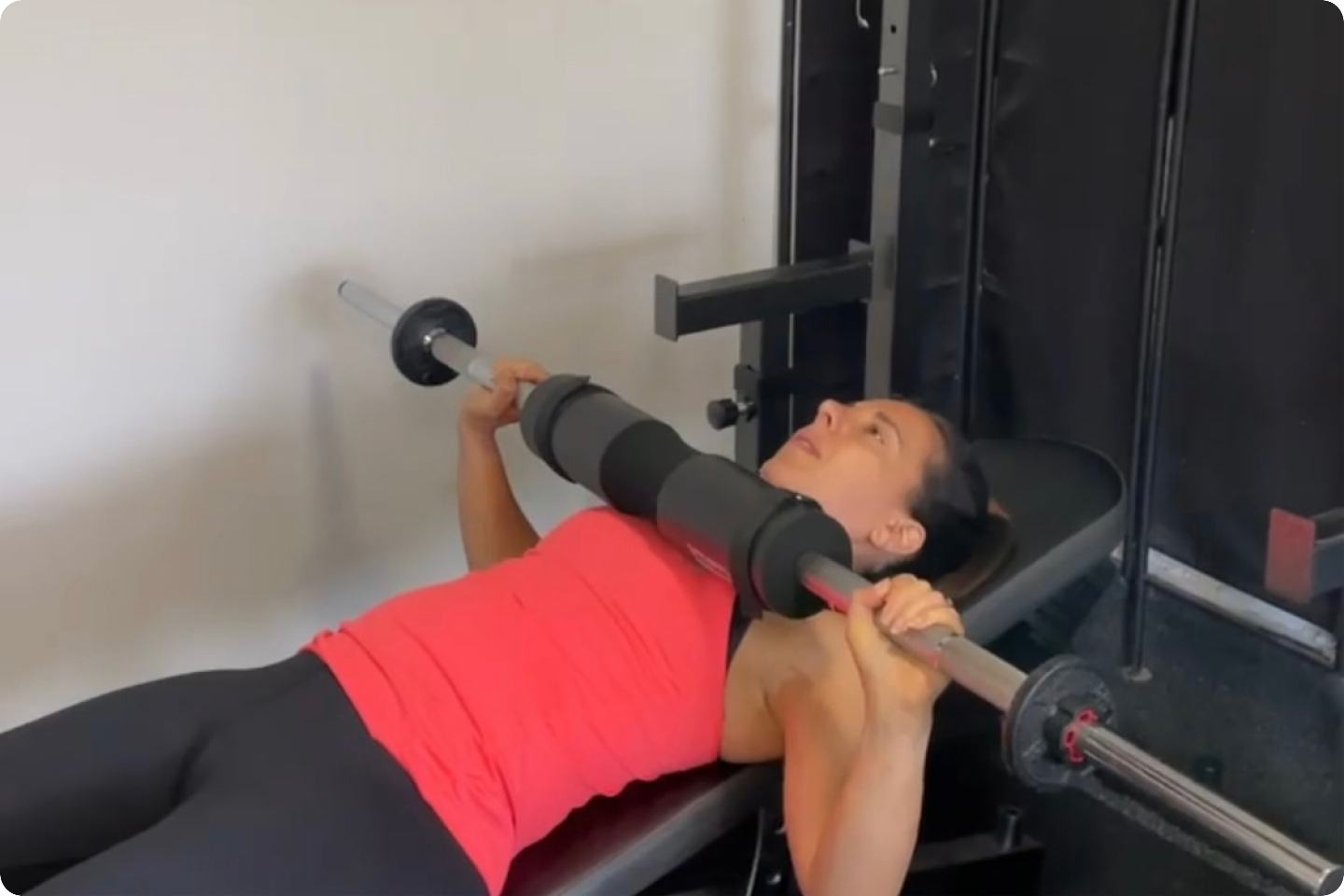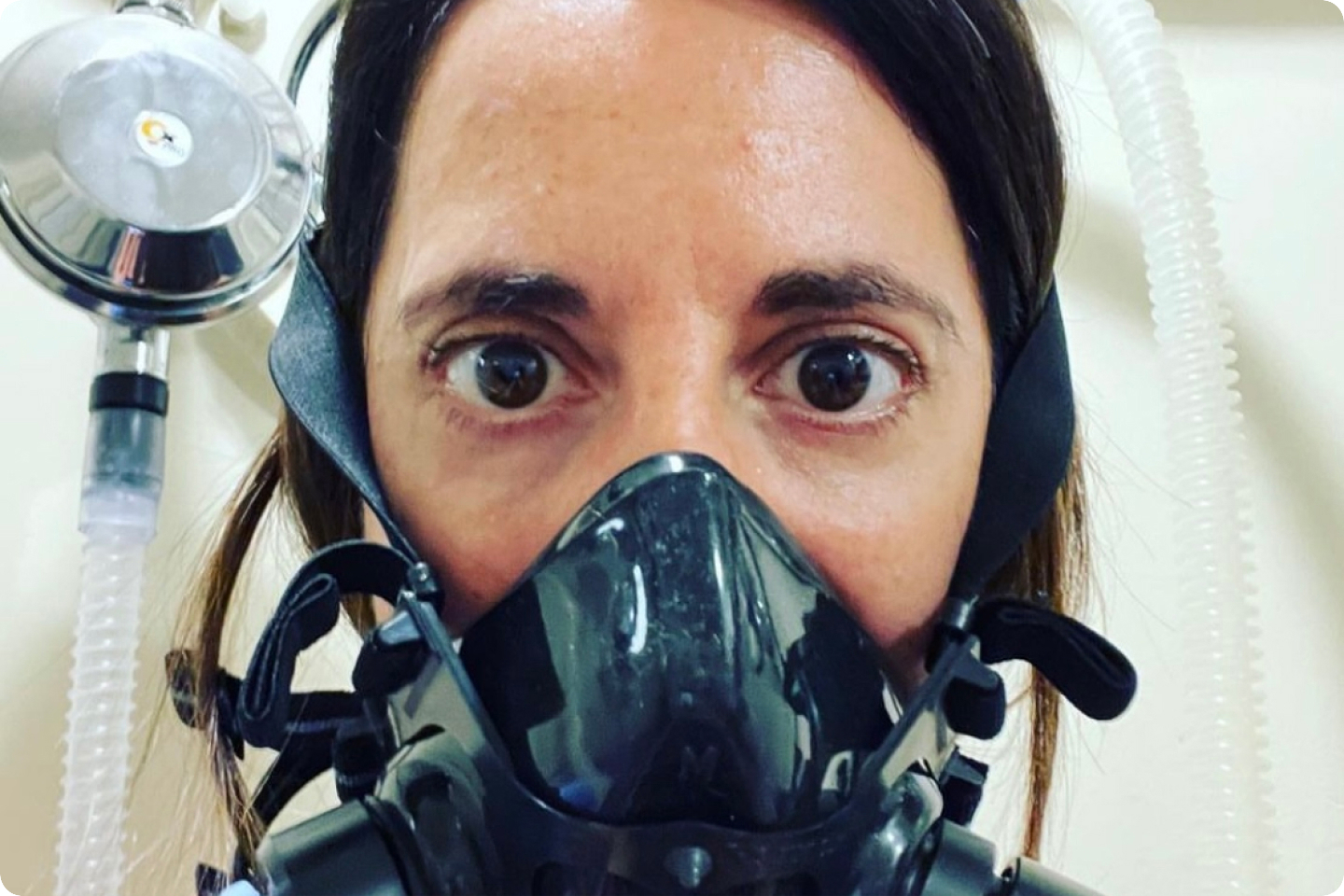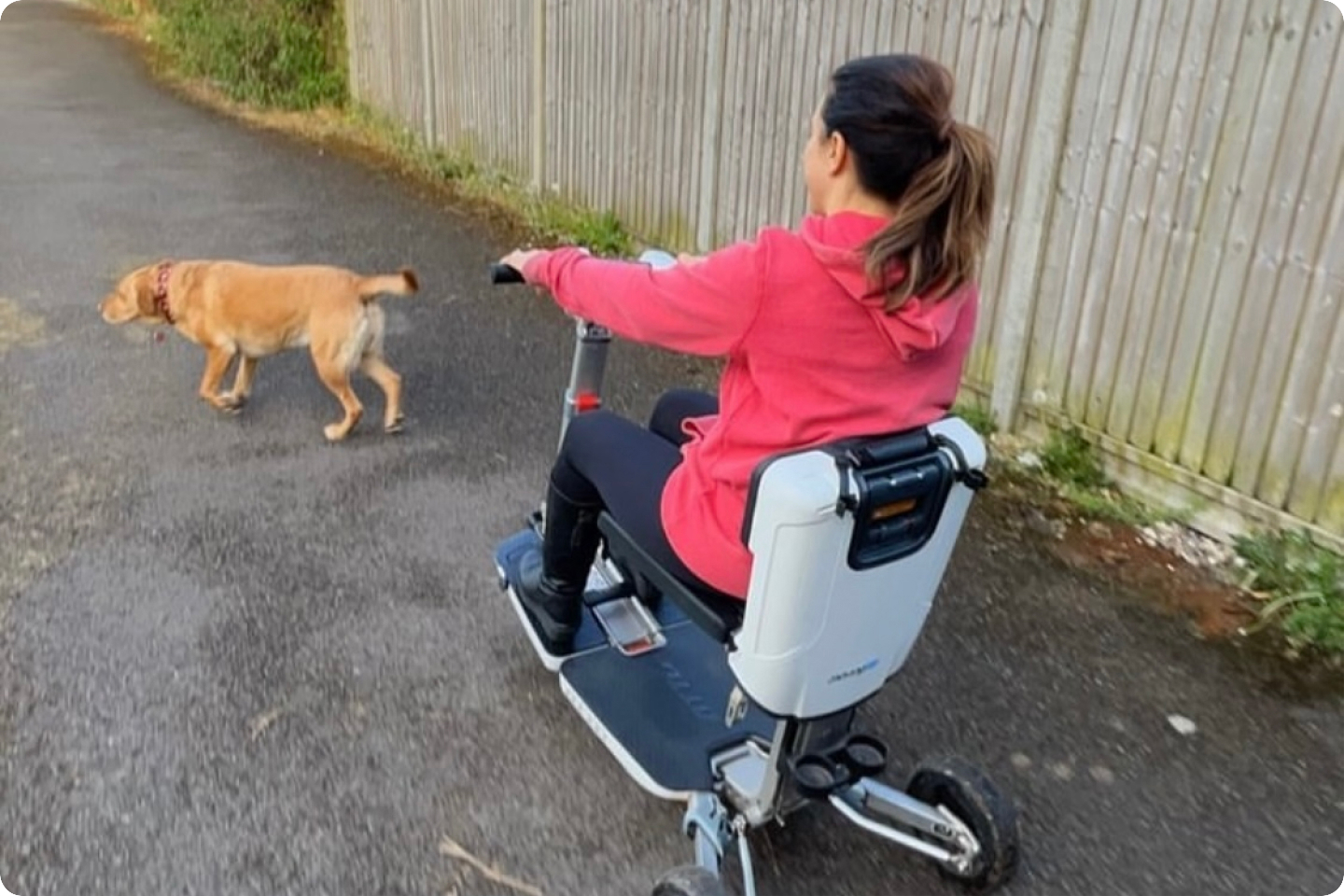All Articles
5 min read
Living with MS: My Journey and Advice for Others

Written by
Georgina, Founder of Purpl
Published on
July 4, 2024
My name is Georgina and I am the founder of Purpl Disabled Discounts. Living with Multiple Sclerosis (MS) is a unique journey for everyone. My own experience began in 2003 when I was diagnosed with MS, though I didn’t consider myself disabled at the time. For 13 years, I experienced no visible symptoms and even doubted my diagnosis. Back then, the internet wasn’t the vast resource it is today, and my consultant advised me to forget about the diagnosis, which I did.
Early Signs and Denial
In 2015, I noticed changes in my walking, particularly in my right leg. Looking back, I should have started using walking aids to maintain my posture and gait. Embarrassed by my condition, I tried to hide it. I’d tell people I had a “dodgy leg,” avoiding any mention of MS. Only my close friends knew about my diagnosis.
I tried a disease-modifying treatment (DMT), but it worsened my condition. In 2018, I opted for a more holistic approach to my health. Today, I use two walking poles for short distances, “furniture surf” at home, and use a lightweight wheelchair for longer distances. If I hadn’t been so embarrassed, I might have avoided some of the bad walking patterns that developed. No one tells you about this and hindsight is a wonderful thing, there is no manual for being disabled and what to do next. It would be great if, when you are diagnosed with a condition that often leads to mobility difficulties, you are given advice on the best way to delay that from happening.
Seeking Information and Community Support
When you’re diagnosed with a condition like MS, it’s crucial to get advice on how to delay mobility issues. Nowadays, there’s more information available online. Facebook groups and forums provide valuable support and advice from others in the disabled community so it’s worth seeking them out.
Advice for Those Newly Diagnosed with MS
This advice is based on my own experience and is not medical information. Always consult a healthcare professional for personal advice.
Posture and Walking Aids
Walk tall: Pay attention to your posture and the minute you notice that you are compensating for a weakness, try using an aid. Don’t be embarrassed and don’t worry about what other people think – they are merely a passing ship. Your friends and loved ones will want the best for you. Using two walking poles, instead of one, can help maintain a better posture. Ensure they’re at the right height to avoid bending forward, which can cause back issues. I also recommend getting ones with a wider base that has a good grip otherwise they can slide on slippery surfaces.
Exercise with MS
Exercise is vital: Engage in the right types of exercise. Functional exercises are crucial, believe me, the minute you can’t do knee raises you will regret the day you stopped doing them. Even if you can do the movements now and don’t see the need,, it will change and the saying ‘use it or lose it’ is so true. Programs like Trevor Wicken’s MS Gym or Optimal Body Balance with David Lyons (who has MS) can be beneficial. The saying “use it or lose it” is true—maintain your abilities for as long as possible.

Photo: Georgina is lying on a workout bench holding a weight above her chest – ready to do a chest press exercise.
Holistic Therapies
Regular chiropractic appointments, acupuncture, sports massages, and neurophysio help me maintain my mobility. These therapies can be costly and add to the cost of being disabled, which is why I launched Purpl, so I can help our community offset these costs through discounts. You can get access to services at charity centres, I used to attend the MS Centre for oxygen therapy which was very beneficial but for me it was an hour drive there and back so it’s just not viable for me to go there whilst I am trying to focus on growing Purpl. Definitely worth looking for your own local centre as you can get access to different therapy sessions for the cost of a donation.

Photo: Georgina wearing an oxygen mask covering her nose and mouth.
Assistive Technology and Equipment
We are lucky that we live in a time when technology is always evolving and this means more and more assistive technologies are being developed to help the disabled community. For MS there are quite a few things out there that can help from orthotics to improve foot drop to machines that help people walk.. Foot drop is one of the worst things about MS as it really hinders your mobility. It doesn’t happen straight away and you probably won’t notice it creep up on you unless you are aware of it – which I wasn’t. Believe me when I say it takes a lot longer to unlearn something. Keep doing those heel raises and stretch those feet. I even purchased a nifty foot gym – I regret not keeping at it, as I didn’t see the importance until after I developed foot drop. It reminds me I should hunt it out and start using it for my left foot which isn’t as bad.
Massage and Stretching
I know I touched on this already but it is so important. You can get yourself a massage gun and use it regularly to help reduce spasticity. They aren’t overly expensive and it’s definitely an investment in your health. I tend to use mine in the evenings when watching tv and afterwards I will do some stretches. Both are important for keeping your body as supple as possible for as long as you can.
Diet
I am not going to delve too deeply into this because all our bodies are different and what works for one person doesn’t work for another. We are all different. For me, I avoid inflammatory foods as living with an autoimmune disease, it makes sense to me to reduce the inflammation as much as I can. When I realised that tomatoes were inflammatory I knew I was going to miss my favourite spaghetti bolognese so I sought out an alternative – roasted red pepper sauce (you can find it on BBC food) I actually prefer it now to tomato based sauces. We use it for chilli and other tomato based meals. I will occasionally have something with tomato in it but I try to stick to my diet routine 90% of the time. If you are newly diagnosed with an autoimmune disease it might be worth looking at the Best Bet Diet by MS Hope.
Supplements
Another expensive part of living with an autoimmune disease. Consult a healthcare professional to determine what supplements are best for you. Essential supplements for me include vitamin D, magnesium, omega-3, and B12. I used to use Autoimmune Nutritionist, you can join her group on Facebook and find lots of advice.
Stress Management
Stress is not good for our bodies so I highly recommend trying to reduce this as much as you can. For me, I do the following stress reducing activities: meditation, reading, exercise, hobbies and socialising. The book “When the Body Says No” by Gabor Maté offers valuable insights into the impact of stress on the body. I appreciate it’s hard and everyone has different lives and situations but I think being aware in the present moment can help you to react differently in situations.

Photo: Georgina on her scooter with her Labrador walking in front of her.
Our Commitment to the Disabled Community
Living with a disability can be expensive. At Purpl Disabled Discounts, we work hard to provide the best discounts to help you save money. Our long-term goal is to establish the Purpl Foundation to offer financial grants for equipment and services that support health and wellbeing. Please let us know if there are specific brands or companies you’d like us to offer discounts for, and we’ll do our best to secure them for you. If you would like to share your story, please email us. Together, we can build a supportive community.
Related Articles
How to Save Money if You Live with a Disability in the UK
Unlocking Discounts for Disabled People: How Purpl is Bridging the £1,000 Monthly Gap
Celebrate World Kindness Day & Neurodiversity: Differently Perfect – Love Who You Are

